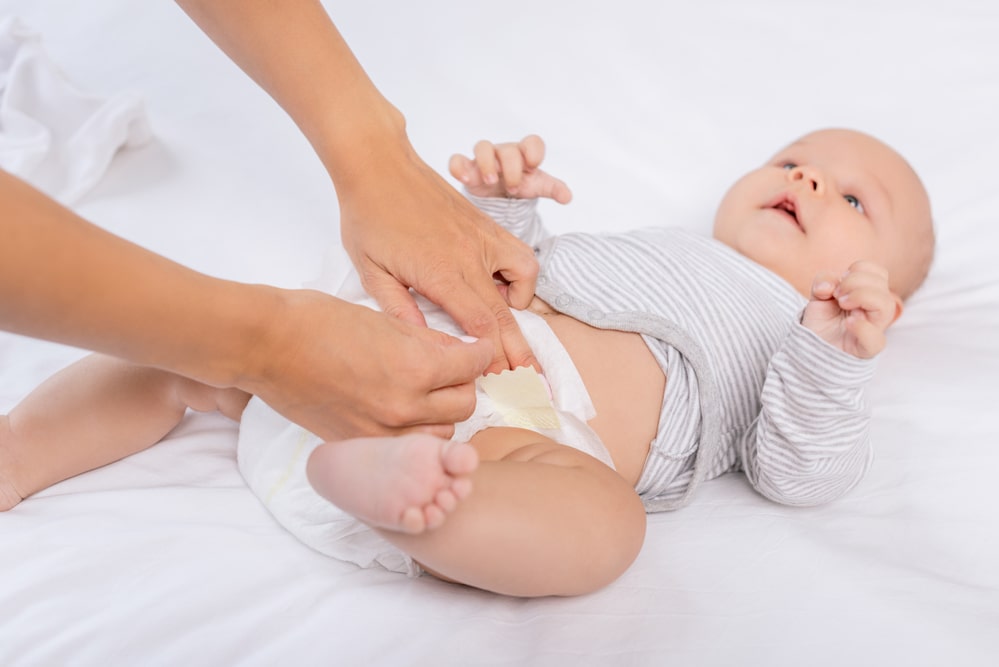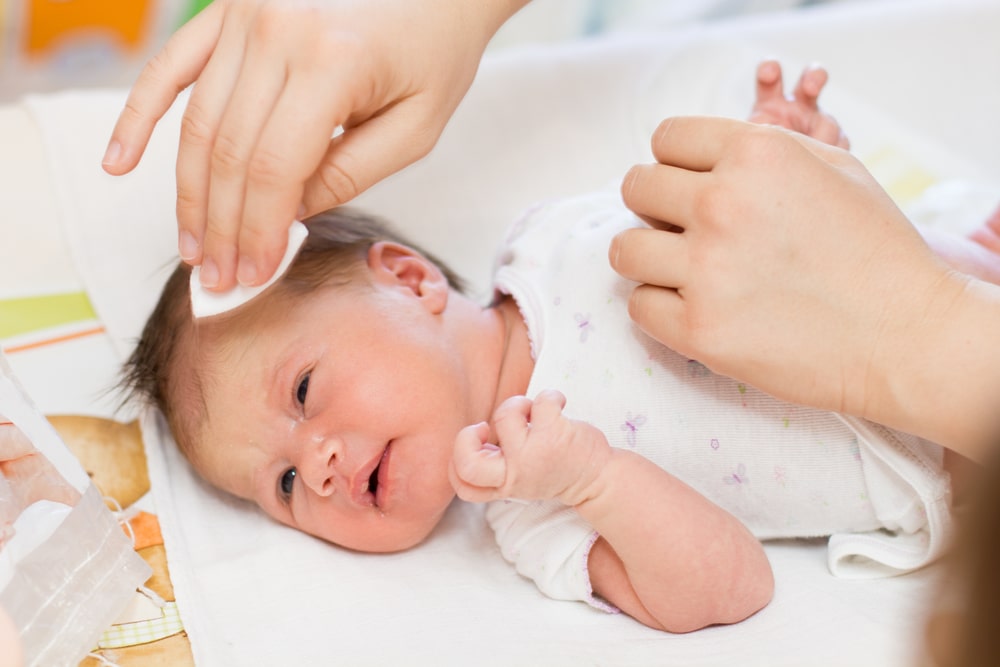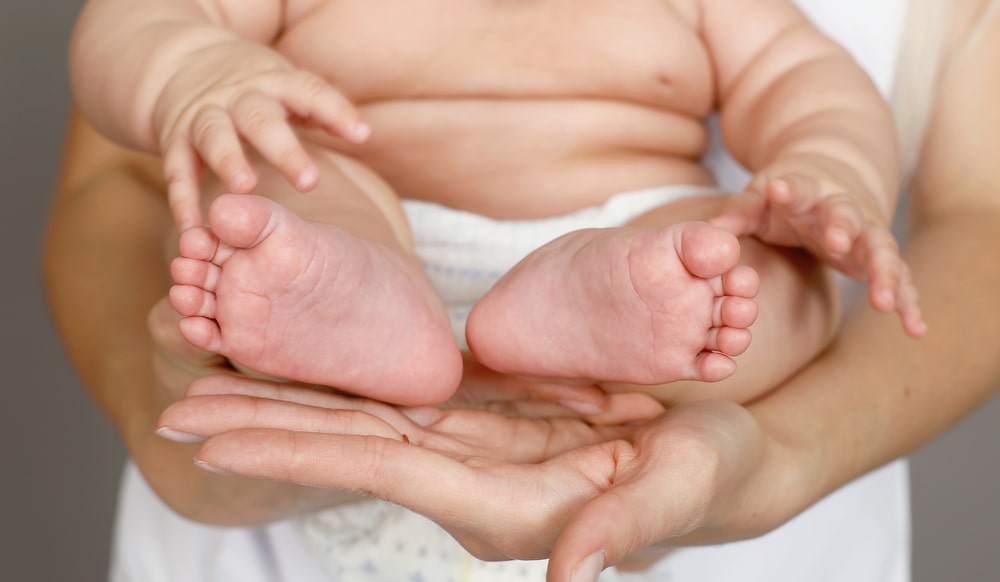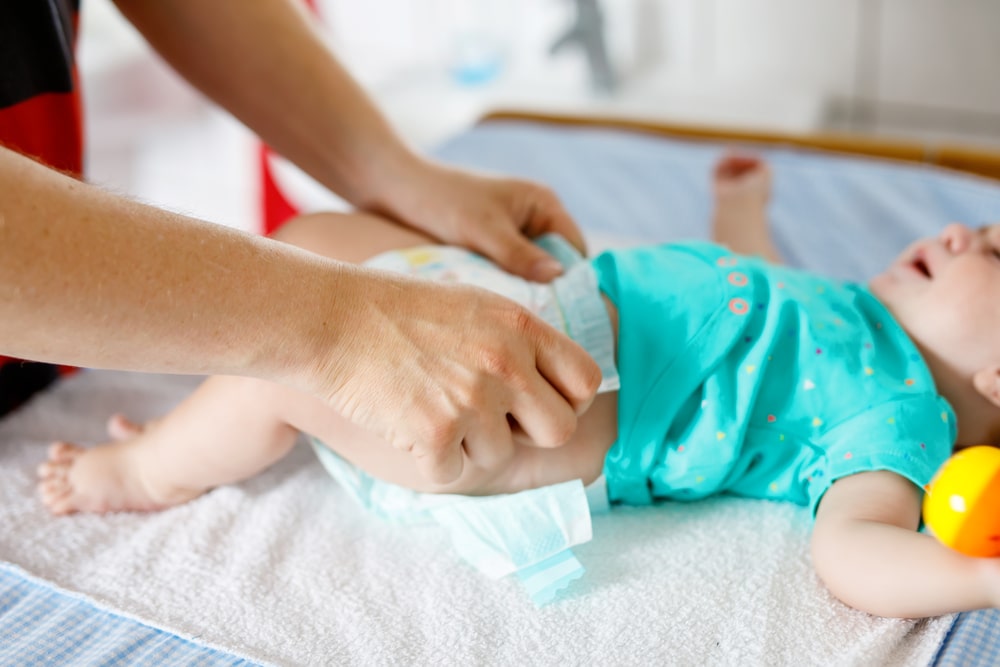Other people seem to take great pleasure in telling you all the awful things about babies. But what they fail to tell you are some of the crucial things that will cause you sleepless nights worrying if your baby is normal.
From acne to weird-shaped heads and poo consistency, yeah, there is such a thing. Let us fill you in on some of the craziest things about babies that are totally normal.
In this article
- 15 Things Nobody Tells You About Babies
- 1. My Baby Is Breathing Strangely
- 2. My Baby Is Very Jumpy
- 3. Baby Has a Strange Shaped Head
- 4. My Baby Sneezes All The Time
- 5. Blood In The Diaper
- 6. My Baby Has A Blister On Her Lip
- 7. All My Babies Cries Sound The Same
- 8. My Baby Has Tiny Red or White Pimples
- 9. My Baby’s Skin Is Dry And Flaky
- 10. My Baby’s Poo Is Like Diarrhea
- 11. My Baby’s Hands and Feet Are Cold
- 12. Do They Ever Stop Eating?
- 13. My Baby’s Genitals Are Swollen
- 14. Just Get Through The First Three Months
- 15. Everything Is A Phase
- The Final Thought
15 Things Nobody Tells You About Babies
1. My Baby Is Breathing Strangely
If you are like me and most new parents, you will probably spend a great deal of time silently stalking your baby ensuring that their chest is rising and falling as it should.
And there is no doubt that you have been freaked out when their normal breathing pattern suddenly becomes irregular.
But there is no need to panic, it is quite normal for infants to go take slight pauses and then have a session of rapid breathing. This is all part of the development of the diaphragm, the muscle that enables breathing.
Generally speaking, a pause of around 20 seconds is considered normal breathing and by the time they are around 6 weeks old, your baby should have developed a more normal breathing pattern.
As a parent, I know that we all worry about sudden infant death syndrome or SIDS and it is wise to be vigilant.
Ensure that your baby is always put to sleep on their back, all soft bedding and toys are removed from the crib and no one smokes around them.
If your baby ever stops breathing for more than 20 seconds which is a classic sign of apnea, or they turn blue or become limp then it is advised that you seek immediate medical attention.
2. My Baby Is Very Jumpy
View in gallery
This is very normal in newborns – after all, they have just spent 9 months curled up in your womb with restricted limb movement.
But due to these restrictions, they haven’t quite figured out the control that they need in order to move their limbs smoothly. What should be a small arm movement becomes a wild and jerky swing instead.
Babies are also born with what is called the Moro or Startle reflex.
What this means is that when your baby feels they are falling they will throw out their arms, open their hands and draw their head back and then quickly bring them back in. This reflex disappears by around 3 months old.
Your baby’s neurological system is still very much developing and often sends more electrical impulses to muscles than is actually necessary – this can cause trembling or quivering.
Most quivers are nothing to be worried about. But if your baby’s shaking is rhythmic or if a trembling limb doesn’t stop when you touch it then you should consult your doctor.
3. Baby Has a Strange Shaped Head
Babies are often born with a strangely shaped head – almost cone-like. This is due to the fact that they have more than likely spent a few hours stuck in your pelvis and that baby’s skulls are not solid like an adult.
Babies have openings in their skull that allow them to change their shape in order to fit through the birth canal.
This cool feature also helps to protect against things like skull fracture and brain injury during vaginal delivery. No need to worry though your beautiful baby’s head will soon go back to shape,
4. My Baby Sneezes All The Time
Newborns sneeze a great deal but this has nothing to do with them being sick. It is just how they clear their nasal passages of congestion and airborne particles.
Sneezing can also help to open up a temporarily closed nostril. When your baby nurses their nose often gets pushed up against you, this may flatten their nose causing one nostril to pushed shut.
Once the baby has finished feeding they will take a breath or sneeze to open this nostril back up again.
5. Blood In The Diaper
View in gallery
This is again down to maternal hormones in your baby’s system. Do not be alarmed if you see a small stain of blood in your baby girl’s diaper in the first few weeks of life.
This mini menstrual period will usually only last a few days. If the blood is bright red, this is unusual and will require medical attention.
6. My Baby Has A Blister On Her Lip
Many newborns develop a small nursing blister on their lips caused by sucking on a bottle or breast. In some babies, the blister can be present at birth caused by sucking their thumb while in the womb.
This small type of blister is not painful to your baby and causes them no discomfort at all. The skin growth over the blister may stiffen the lip and make grasping the nipple slightly easier. It will disappear on its own in a few months.
7. All My Babies Cries Sound The Same
Everyone tells you that you will instinctively know what your baby needs by their cry – but this can take a while to learn.
If you are still struggling with the finer points of your baby’s language do not worry, over time you will definitely begin to recognize the different cries and what they mean.
In the very early days, your baby may cry for no reason at all but you will always react with the same love and attention, and to be honest, sometimes that is all your little one needs is the familiar and comforting cuddle from mom.
8. My Baby Has Tiny Red or White Pimples
This is something called baby acne and it is extremely common. It is usually a temporary skin condition that can develop on your baby’s face or body.
It is recognized by tiny red or white bumps or pimples. In the vast majority of cases, the acne will resolve itself and requires no treatment at all.
Baby acne occurs in around 20% of newborns. It only happens in the first few months of life.
9. My Baby’s Skin Is Dry And Flaky
View in gallery
While your baby was happily floating in their own little amniotic fluid pool, their skin was safely protected with a waxy material called vernix.
But once they are born and their protective vernix is wiped away their skin is exposed to the air and the upper layer dries out and often begins to peel. It is most noticeable on a baby’s feet and hands but some baby’s entire bodies peel.
It is not advised that you pick at this flaking skin as you may remove skin that is not ready to come off. You do not need to moisturize either as the peeling usually only lasts around one to two weeks.
10. My Baby’s Poo Is Like Diarrhea
Your baby’s poo will look very different depending on whether they are breastfed or bottle-fed. If your baby is breastfed their poo is seedy, mustard yellow in color, and has no form to it.
While if your baby is bottle-fed their poo tends to be more solid, brownish in color, and is the consistency of soft ice cream.
Some babies poop often while others not so much, exactly as adults do. But as long as your child is growing, gaining weight, and has no abdominal pain or bloating, their pooping frequency is right for them.
Breastfed babies very commonly poop after every feed. This is called the gastro-colic reflex – whenever milk goes into the stomach, something comes out the other end.
If you have concerns then it is always best to consult a medical practitioner. But your best option is to become familiar with your baby’s bowel movements – frequency, volume, and consistency.
If you know what is normal then you have a far greater chance of being able to easily spot when something is not normal.
11. My Baby’s Hands and Feet Are Cold
Every system in your baby’s body is still developing and their circulatory one is no different.
As this system is still developing it appears that blood is directed to the core of the body where all the vital organs are and where it is needed most.
View in gallery
Your baby’s hands and feet are the last part of the body to get a good blood supply. It can take almost three months for your baby’s circulatory system to adapt to life outside its cozy womb.
While it sorts itself out it is all too common for young babies to have cold hands and feet. As your baby increases its mobility the circulation will get better.
12. Do They Ever Stop Eating?
The first few weeks after birth your baby will eat little and often. This may feel as though they are constantly feeding.
But there is a method in this madness – to increase your milk supply to match their increasing appetite. Breast-fed babies will feed more often as their body digests breast milk quicker than formula.
In their first six months of life, your baby will double their birth weight, as you can imagine this requires a huge calorie intake.
You can expect that your baby will become especially hungry during growth spurts, these usually first occur around 4 and 6 weeks of age. You do need to be careful that you do not misinterpret their cues as hunger when in fact all they want is a cuddle.
If they have eaten within the last 2-3 hours, you could try holding or swaddling your baby to see if that helps to soothe them.
13. My Baby’s Genitals Are Swollen
This is not anything to worry about and it happens to both genders. This swelling is due to the fact that your baby still has a huge amount of mom’s hormones running around their bodies and even more so if they are breastfed.
In girls, these hormones cause the labia to swell while in boys testicles can seem overly enlarged. This type of genital swelling will subside over the first few days after birth.
View in gallery
14. Just Get Through The First Three Months
Everyone is different but for me, the first three months are always manic. I literally mean hold on to your hands because you are in for a wild ride.
There is sleep deprivation, and no matter what anyone tells you, you can not prepare for it.
Then there is the constant worry that you aren’t doing it right – babies do not come with a manual and every parent is winging it, no matter what they tell you.
All this is mixed with the feeling that you are going non-stop yet not really accomplishing anything at all.
I have five children and it doesn’t get any better. You think it would but it just gets crazier, but somehow it doesn’t seem to affect you as much as your first dose.
And when you look back on it, it is just a tiny part of their lives and once you get into a routine of some sort it all seems to sort itself out. Take my word for it you will very quickly miss that tiny baby snuggled up on your chest for hours, snoring away!
15. Everything Is A Phase
Seriously I am not joking all the things that your baby goes through that nobody told you about are just another brick in their wall of life.
It’s another achievement, another developmental milestone completed – thinking of it like this will help you keep your sanity, I promise!
Crying every single time you put them down – a phase. 3 am feeds – just a phase. Sleep regression – a phase I promise! Those difficult and exhausting first three months – yip you guessed it just a phase.
These difficult times will pass and in a few months, you will miss how much your baby needed you!
The Final Thought
Babies are complicated little beings that show up in our lives with no manual and proceed to scream until we figure out what they want.
But as parents, this is our job and one that you will get great satisfaction from as you watch your little bundle grow into an amazing person. Enjoy every minute of it even the sleepless night, constant crying, and all the different phases.






